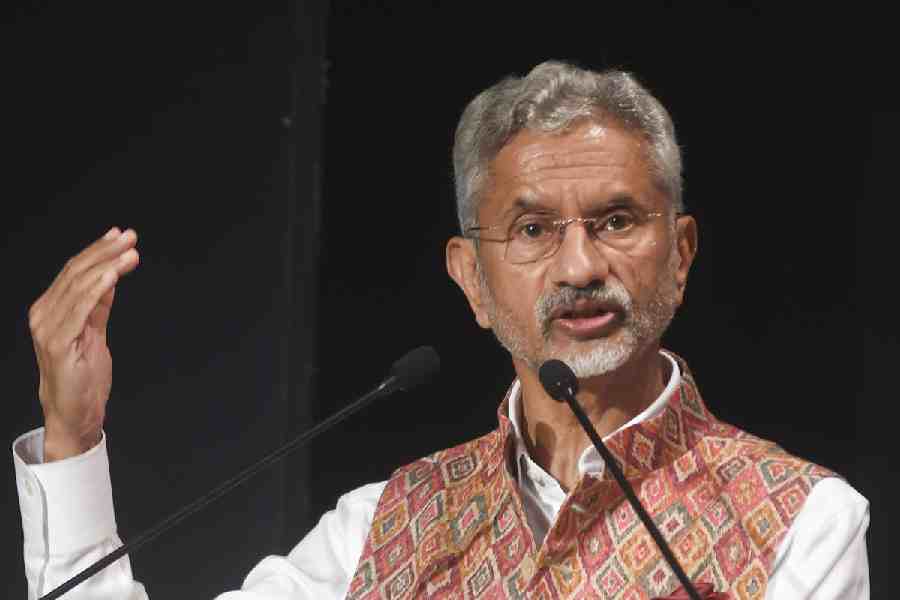Bakeries and bookshops — the few that remain — are, clearly, a threat to Indian democracy.
For years, Prime Minister Narendra Modi and his team have portrayed their political opponents as the so-called ‘Khan Market gang’, a reference to the popular Lutyens’ Delhi hub that authors and bureaucrats, politicians and students have long visited for kebabs, quiche and crime novels. It’s a space where Left-liberal Indians from an elite background have felt at ease. But to Team Modi, the site has held sinister connotations of a cabal secretly working to undermine the rise of the Right.
Now, Modi’s foreign minister, S. Jaishankar, has — appropriately perhaps, given his office — taken that narrative to a global level. In a recent interview with a podcast host, Jaishankar was asked about the Western media and its criticism of the Modi government’s actions, such as the arrest of Opposition leaders. The external affairs minister responded by painting a picture of what he described as an “international Khan Market gang”, arguing that sections of the Western media, accompanied by universities, think tanks and a motley group of other devious conspirators, try to influence India’s election process.
According to Jaishankar, Western media outlets “play up” certain stories, angles and narratives to influence how Indians vote in elections. “In fact, in previous elections, perhaps even in this one, they have actually openly endorsed parties, and openly endorsed leaders, and openly, you know, said that this party or this leader is bad for India.” He also said rankings — on the state of democracy, human rights or press freedom in India — issued by think tanks are often meant to “demoralise” the country.
The implication in Jaishankar’s words was clear: the Western press and its allies are undermining the will of the Indian people by trying to convince them that the Modi government is bad for them.
All that sounds very dangerous — almost as dangerous as 2014.
Ahead of that election, and indeed in the years leading up to that vote, the Western press and influential commentators had painted a picture of doom and gloom about India under the then Congress-led government of Manmohan Singh. The alleged scams of that era made headlines and, as India’s economy stumbled, questions were raised in the global media about its place among the BRICS grouping of major emerging economies. Then, as the actual vote drew closer, some commentators in the West openly presented Modi, then a prime ministerial aspirant, as the answer to India’s woes. After Modi was elected, a slew of laudatory, hope-filled articles and op-eds dominated many of the same global newspapers that today, presumably, form a part of the “international Khan Market gang” because of their criticism of Modi.
Politicians usually have long memories, but Jaishankar hasn’t been a politician for long — so he can be forgiven for thinking that the Modi government is the first Indian administration to face scrutiny and tough questions from the global press. But what he — and the Indian government — cannot do is to have it both ways. As India’s economy grows, and its influence in the world expands, as Team Modi insists that this has happened at an unprecedented scale over the past decade, it is only natural that the country’s policies, domestically and internationally, will draw more attention from the global press. A confident government would wear that as a badge of honour — not as a sign of some underhand plot.
What is truly devious is the attempt to portray criticism of the Modi government in the West as the outcome of some conspiracy between the Indian Opposition and the global press. It is by portraying political opponents as foreign collaborators that one undermines Indian democracy. And it is the disdain for the press and its decisions on what to cover and how to cover it that leads to a demotion in global rankings, not some pre-planned strategy to “demoralise” Indians.
The press — Indian or Western — has not just a right, but a duty to question those in positions of influence. That responsibility does not end at the borders of any publication’s country.
Charu Sudan Kasturi is a senior journalist who writes on foreign policy and international relations










